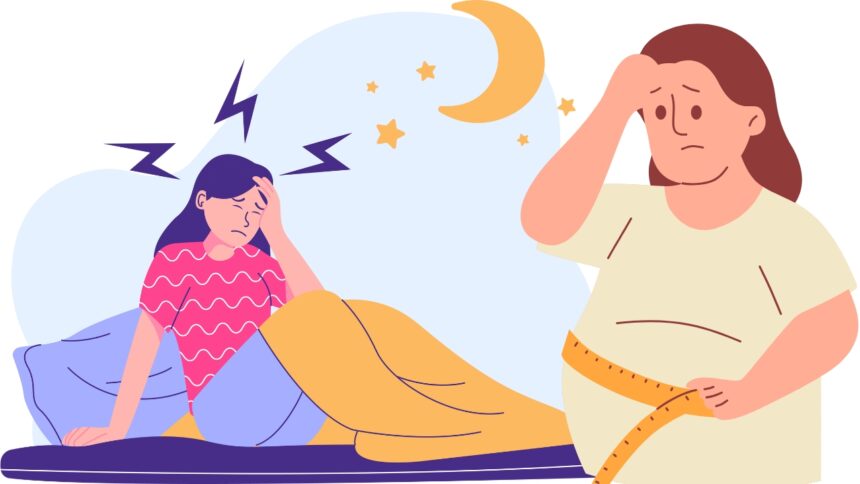The Sleep-Weight Connection
If you’re sleeping less than 7 hours a night and wondering why the number on the scale keeps climbing, you’re not alone. New research shows that inadequate sleep can significantly increase the risk of weight gain, metabolic disorders, and poor dietary choices. In this article, we’ll break down exactly how sleep deprivation leads to weight gain — and what you can do to reverse the effects.
How Sleep Less Than 7 Hours Affects Your Body
1. Disrupts Hunger Hormones
One of the most immediate effects of sleep deprivation is the disruption of two key hunger-regulating hormones: ghrelin and leptin. Ghrelin stimulates appetite, while leptin tells your brain when you’re full. When you sleep less than 7 hours, ghrelin levels rise and leptin drops — making you feel hungrier than usual.
2. Increases Cravings for Junk Food
Ever noticed that you’re more likely to crave sugary, high-fat snacks after a sleepless night? That’s not a coincidence. Sleep deprivation impairs your brain’s frontal lobe — the decision-making area — and enhances activity in reward centers, making unhealthy foods more tempting.
3. Slows Down Your Metabolism
Research shows that insufficient sleep slows down your resting metabolic rate (RMR) — the number of calories your body burns at rest. A sluggish metabolism can lead to increased fat storage, especially around the abdomen.
4. Leads to Emotional Eating
When you’re tired, your emotional regulation is impaired. You may find yourself stress-eating or eating out of boredom, even when you’re not truly hungry. This emotional eating pattern is a known contributor to weight gain.
Sleep Deprivation and Insulin Resistance
Studies suggest that getting less than 7 hours of sleep per night can lead to insulin resistance, a condition where your cells don’t respond well to insulin. Over time, this can raise blood sugar levels and increase your risk of type 2 diabetes, a condition commonly linked to obesity.
Less Energy, Less Physical Activity
When you’re tired, you’re less likely to exercise. Fatigue reduces both your physical performance and your motivation to move. This means fewer calories burned and more time spent sedentary — a perfect recipe for weight gain.
Inflammation and Fat Storage
Chronic sleep deprivation raises levels of cortisol, the stress hormone. High cortisol levels are associated with fat accumulation, particularly visceral fat around the organs, which is linked to serious health risks including heart disease and stroke.
Vicious Cycle: Gaining Weight Further Disrupts Sleep
Weight gain — especially around the neck and abdomen — can lead to sleep apnea, a disorder where breathing repeatedly stops during sleep. This condition fragments sleep even more, creating a vicious cycle of sleep deprivation and weight gain.







